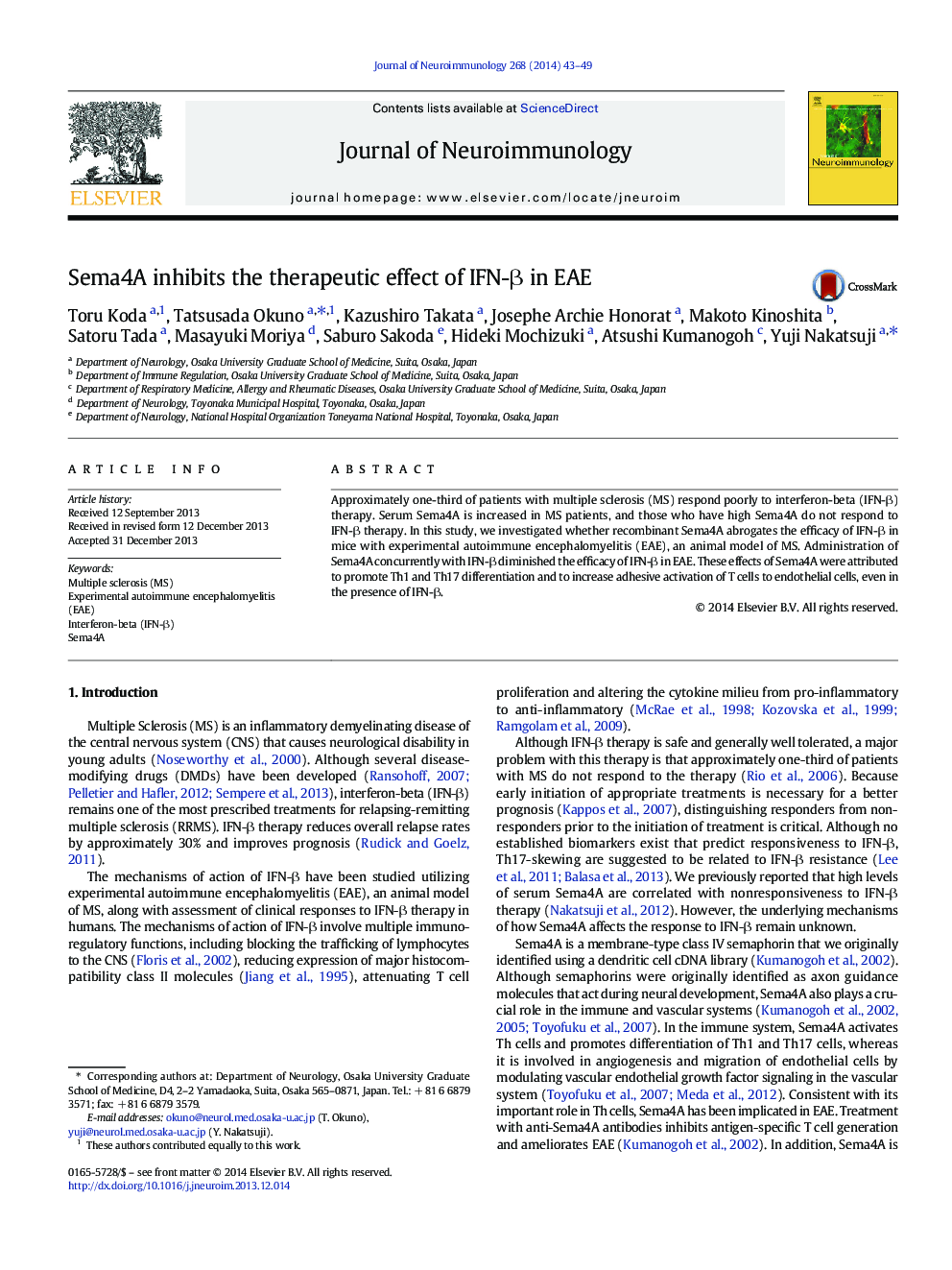| Article ID | Journal | Published Year | Pages | File Type |
|---|---|---|---|---|
| 6020436 | Journal of Neuroimmunology | 2014 | 7 Pages |
Abstract
Approximately one-third of patients with multiple sclerosis (MS) respond poorly to interferon-beta (IFN-β) therapy. Serum Sema4A is increased in MS patients, and those who have high Sema4A do not respond to IFN-β therapy. In this study, we investigated whether recombinant Sema4A abrogates the efficacy of IFN-β in mice with experimental autoimmune encephalomyelitis (EAE), an animal model of MS. Administration of Sema4A concurrently with IFN-β diminished the efficacy of IFN-β in EAE. These effects of Sema4A were attributed to promote Th1 and Th17 differentiation and to increase adhesive activation of T cells to endothelial cells, even in the presence of IFN-β.
Related Topics
Life Sciences
Immunology and Microbiology
Immunology
Authors
Toru Koda, Tatsusada Okuno, Kazushiro Takata, Josephe Archie Honorat, Makoto Kinoshita, Satoru Tada, Masayuki Moriya, Saburo Sakoda, Hideki Mochizuki, Atsushi Kumanogoh, Yuji Nakatsuji,
